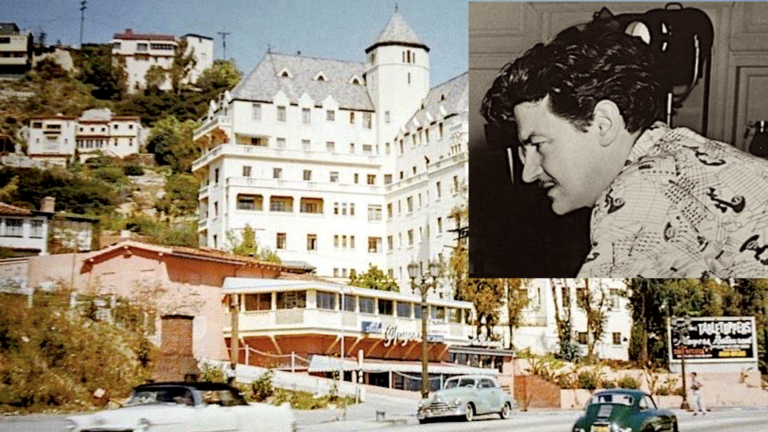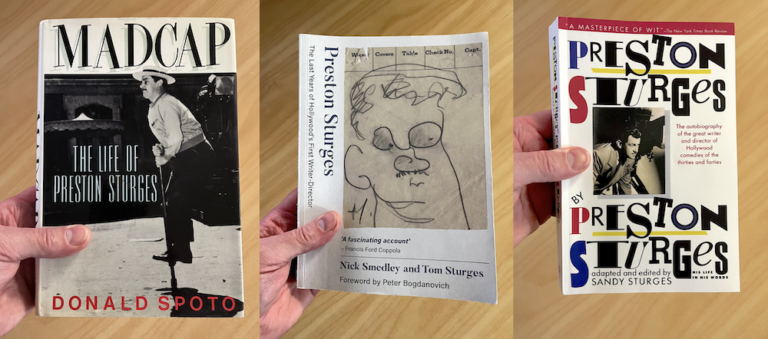Preston Sturges’ magic films
Preston Sturges was the first Writer/Director in hollywood.
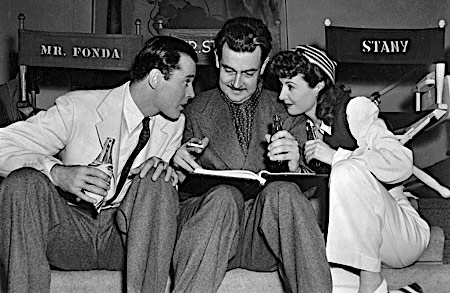
His exotic early life
Preston Sturges’ unconventional mother, Mary, lived an action-packed life and took young Preston along for the ride.
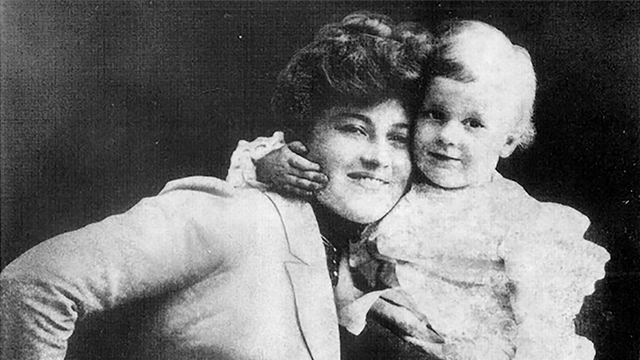
In 1901, when he was 3 years old, his mother annulled her marriage with Preston’s father and left America for a bohemian life in Paris. Mary was an enchanting woman who had many artistic and outrageous friends and sought every kind of experience – including living with an Occult Magician.
Preston grew up with constant change as he bounced back and forth between Europe and the United States. This helped him understand people from different perspectives. Very useful for creating characters in his films.
Screenwriter in 1930s – the magic begins
Living in New York in 1928, Preston went out on 3 dates with a woman who then explained she was never interested in him, just researching romance for a play she was writing.
He decided the best way to restore his bruised ego was to write a play himself based on this experience. He bought a book on story structure (A Study of the Drama, 1910) and sat down on his father’s dining table to write The Guinea Pig which opened in January 1929 as a 3-act comedy.
Encouraged by the idea that he might have finally found a career path at the age of 30, Sturges wrote a second play the same year.
Strictly Dishonorable was a smash Broadway hit that brought Preston overnight fame and fortune. It ran for 557 performances and was adapted into a movie in 1931 (that I just watched for free on YouTube): Strictly Dishonorable (1931)
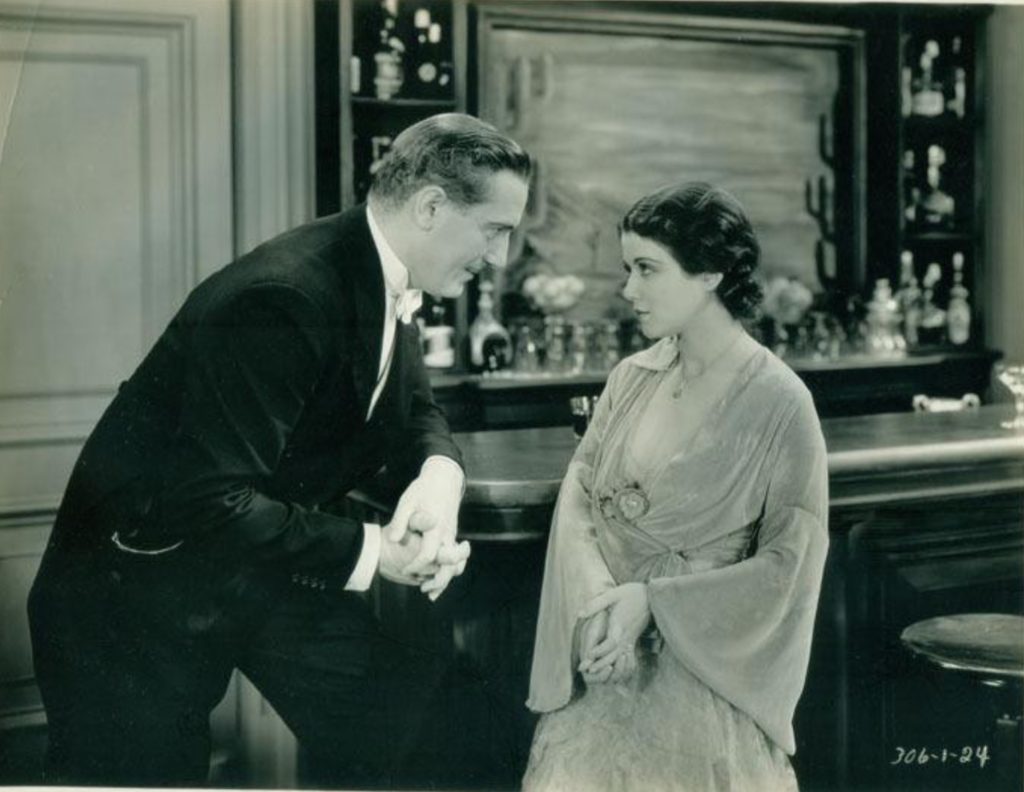
Then Hollywood called and Sturges was writing for Paramount by the end of 1929.
During his time as a ‘screenwriter-for-hire’, Sturges invented the flashback. At least that’s how it’s been described. In 1933 he wrote the screenplay for The Power and The Glory starring Spencer Tracy. The life of industrialist C. W. Post was told through a series of flashbacks and flashforwards.
This new, non-linear storytelling format was a prototype for the structure of Citizen Kane (1941).
Sturges was highly paid and in great demand, but unhappy with the way directors handled his dialogue. He wanted to direct his own screenplays. This was unheard of at the time. Hollywood used the Studio System where writing and directing were seen as distinctly separate skills.
In 1939 Sturges came up with a plan. Paramount could have his screenplay for The Great McGinty for just $10 – on the condition he would direct. They agreed. It was a hit. It even won an Academy Award.
“It’s taken me eight years to reach what I wanted. But now, if I don’t run out of ideas – and I won’t – we’ll have some fun. There are some wonderful pictures to be made, and God willing, I will make some of them.”
Preston Sturges on becoming Hollywood’s first writer/director
Sturges’ magic films: 1940-44
Sturges made 8 films in 4 years:
‘Remember the night’ (1940)
A sweet movie written by Sturges starring Barbara Stanwyck and Fred MacMurray. A little slow at times, but still worth watching today. Sturges believed that Director Mitchell Leisen failed to maximise his dialogue. He directed his own movies from this point on.
‘The Great McGinty’ (1940)
A clever movie for its time although a little dated today. It was a hit and Sturges was presented with an Academy award for the newly created category of best original screenplay.
“Writers at that time worked in teams, like piano movers. And my first solo script was considered a distinct menace to the profession”
‘Christmas in July’ (1940)
I love this movie. It’s still fresh and delightful and funny. You can see the Sturges magic as he combines original ideas, playful language and emotionally rich characters – anchored by an acting team working in harmony with their beloved director.
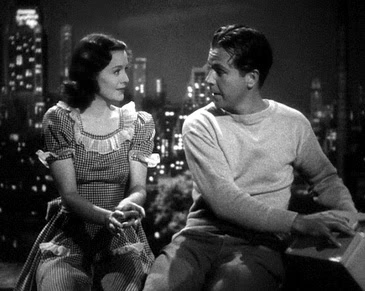
The humour is unique – it’s like Sturges has a special lens to show us inner secrets of the human condition. And when we see through this lens we feel fortunate, with a warmer understanding of people and life. Watch this movie. It’s currently on YouTube for free: Christmas In July (1940).
‘The Lady Eve’ (1941)
A solid gold classic! Barbara Stanwyck is incredible as a beautiful con artist (modelled on Sturges’ charismatic mother, Mary). Young Henry Fonda is her wealthy, naive target and Charles Coburn is perfect as her scammer dad.
Sturges moulded the screwball comedy into something fresh with sparkling wordplay and loveable characters. The Lady Eve is still included on many Top 100 Movie lists. A must see. Watch this 2 min clip and you’ll be hooked:
‘Sullivan’s Travels’ (1941)
Some critics rate this movie as a classic. Bits and pieces are compelling but it doesn’t come together, in my opinion. Veronica Lake is good in this. I’d heard her name and seen her iconic peek-a-boo hair style but not seen her movies. She ‘pops’ on screen.
‘The Palm Beach Story’ (1942)
Meh 🤷🏼♂️. The opening sequence is fascinating but the movie is slow.
‘I Married a Witch’ (1942)
Sturges didn’t write or direct ‘I Married a Witch’ yet was credited as Producer. It was a fresh idea for its’ time – and there’s Veronica Lake again, drawing your attention with her star power. Even her voice-over pops.
‘The Miracle of Morgan’s Creek’ (1944)
Haven’t seen this yet. Supposed to be good.
‘Hail the Conquering Hero’ (1944)
Great film. It’s incredible that Sturges pulled this movie off during wartime. It’s cynical yet optimistic. Patriot and anti-patriotic at the same time. The story plays around with truth and falsehood, yet no one is bad and the story comes together. How did he manage that? I’m not sure, but you should watch it to see how a genius filmmaker can tell a story.
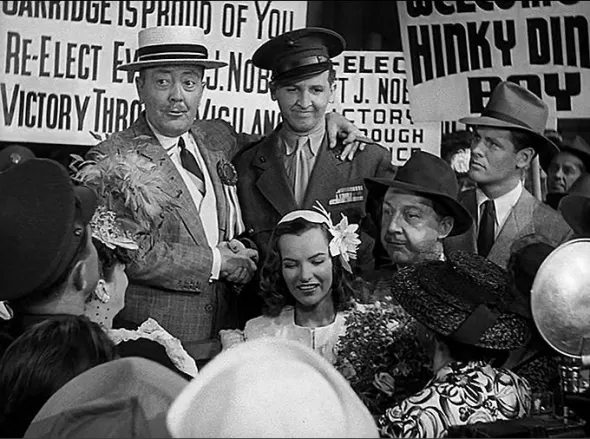
One biographer suggested that the complex and contradictory Sturges personality was distributed to each character in this film. They were all part of Preston Sturges. That’s how he knew exactly how each character felt and what they would say.
‘Unfaithfully Yours’ (1948)
I saw Unfaithfully Yours on late-night TV as a teenager. I didn’t know Preston Sturges but loved this surprising film with Rex Harrison playing a symphony conductor who believes his wife is having an affair.
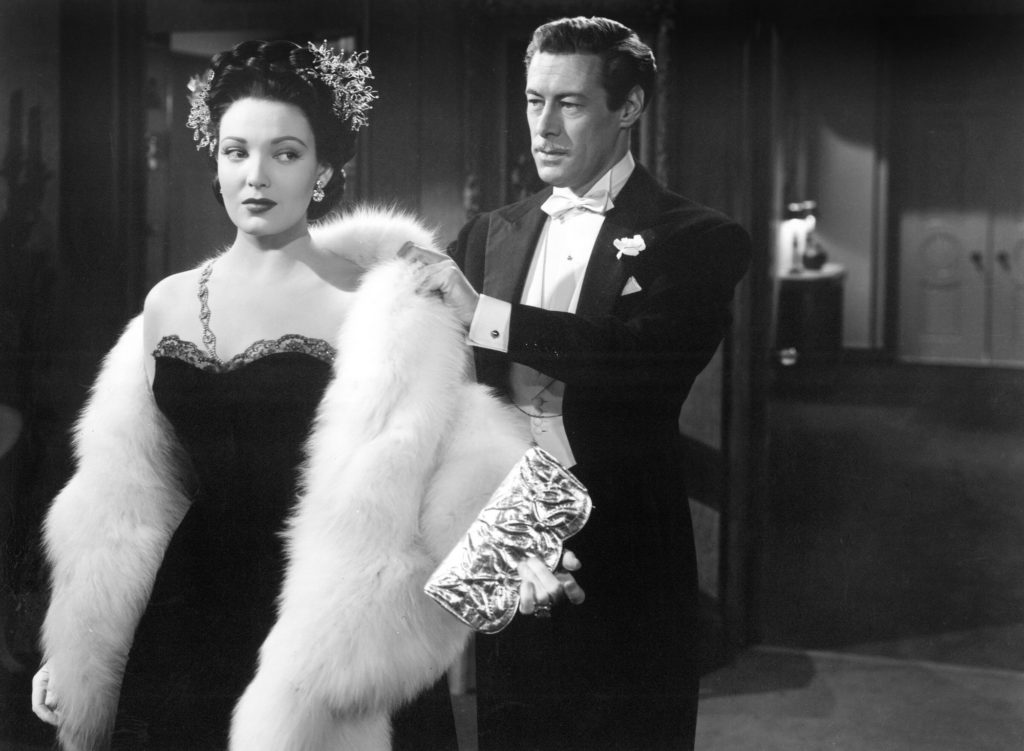
In a wonderfully original story, he imagines three different ways to deal with his heartbreak – as he conducts three different pieces of music.
- Murder.
- Honourable acceptance
- A suicidal game of Russian roulette.
As he begins conducting each piece of music, the camera zooms in to his eye and we see each mini-story played out in his mind. His passion translate to his conducting and the audience cheers after each piece. The movie has some boring bits but the core story is compelling.
Decline – the magic starts to scatter
Preston Sturges dreamed of escaping the Hollywood Studio System. At the peak of his power in 1944 he finally achieve his goal. Ironically, it led to his downfall.
Complete independence was achieved with an amazing deal Hollywood hadn’t seen before. Howard Hughes, the world’s richest man and part-time filmmaker, formed a new company with Sturges. Together they owned California Pictures and finally Sturges would have full creative control.
Preston Sturges was flying higher than anyone in Hollywood.
Yet he never had another hit. ‘Unfaithfully Yours’ (1948) was a great movie but not successful at the box office. Great films often involve creative arguments and compromises. Perhaps Sturges needed that dynamic for success.
Howard Hughes pulled the plug on California Pictures after only 2 films. And, as time went on, Sturges gained a reputation as difficult, and ultimately, box office poison.
“Every collaboration [you undertake] seems to lead to a fight. We’re sorry…”
Paramount responding to sturges request for a new contract, 1950
Death at the Algonquin Hotel
Preston Sturges died of a heart attack on 5th August 1959. He was staying at his favourite hotel in New York; the Algonquin hotel is a famous meeting place of literary and theatrical notables. The last meeting Sturges had before he died was with actor Don Ameche. They met at the bar to discuss a role in a new Sturges play.
His son, Tom Sturges recently published a biography (2019) on Preston Sturges’ final 10 years. It is a fascinating if depressing exploration of a troubled genius, trying to climb back to the top of the mountain, while struggling with the demons of drink and arrogance. But the final page is wonderful:
“…we must leave Ameche and Sturges there, two handsome middle-aged men, both veterans of Hollywood, laughing and sharing a drink in the bar of the Algonquin Hotel. Sturges perhaps his arm around the younger man’s shoulder, re-enacting the farcical action and amusing dialogue of his new play, playing all the roles, eyes sparkling, a cigarette in his free hand, a cocktail on the bar. His one-man audience is enraptured, roaring with laughter at every new joke and twist in the plot…”
An optimistic tribute from his son who was only 4 years old when Preston died. After reading this, I want to visit the bar at the Algonquin hotel to imagine this conversation. Great stuff 🙂
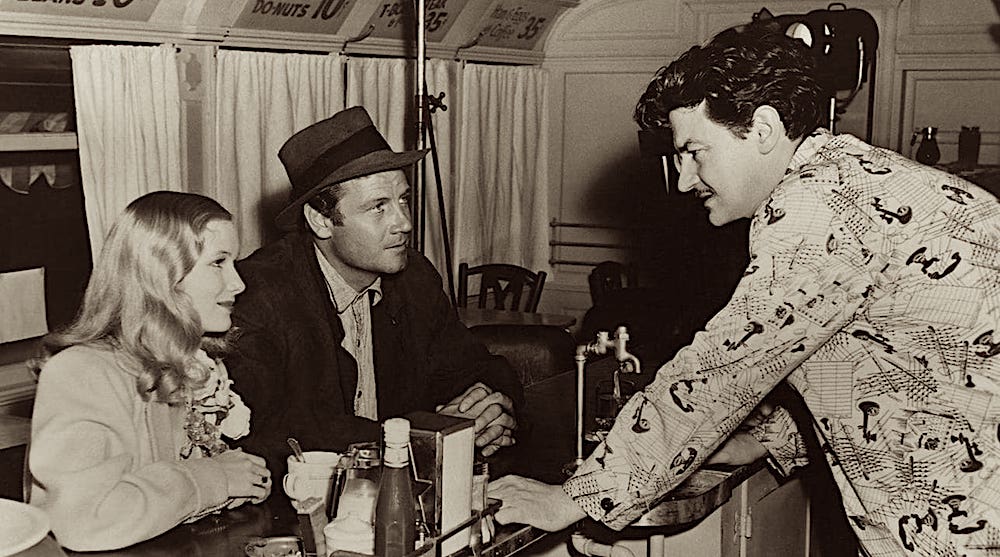
The magic came from his unique worldview
Preston Sturges live a unique life before he started writing at the age of 30, interacting with a broader cross-section of humanity than any other filmmaker. He wrote plays in both French and English, lived with artists, royalty, occult magicians, business magnates. He managed businesses in Paris and New York and invented all-day lipstick.
He crafted stories that were full of contradictions, yet somehow blended together to seem familiar to audiences. He made cynical comedies about corruption and heartbreak – with heart and a happy ending. Somehow!
Sturges movies make ridiculous scenarios seem believable – because Sturges had seen so much of the world in its ridiculous absurdity in real life.
One critic believes that Sturges films show us how to live in a world of hucksters and dupes. His films are “a way to reconcile the knowledge that our society is a series of interlocking scams” and keep smiling anyway.
Sturges doesn’t show us many traditional families, because he didn’t have one himself. But he was able to create hundreds of wonderful characters that we recognised as human – “Hey, they’re a bit like us…”.

